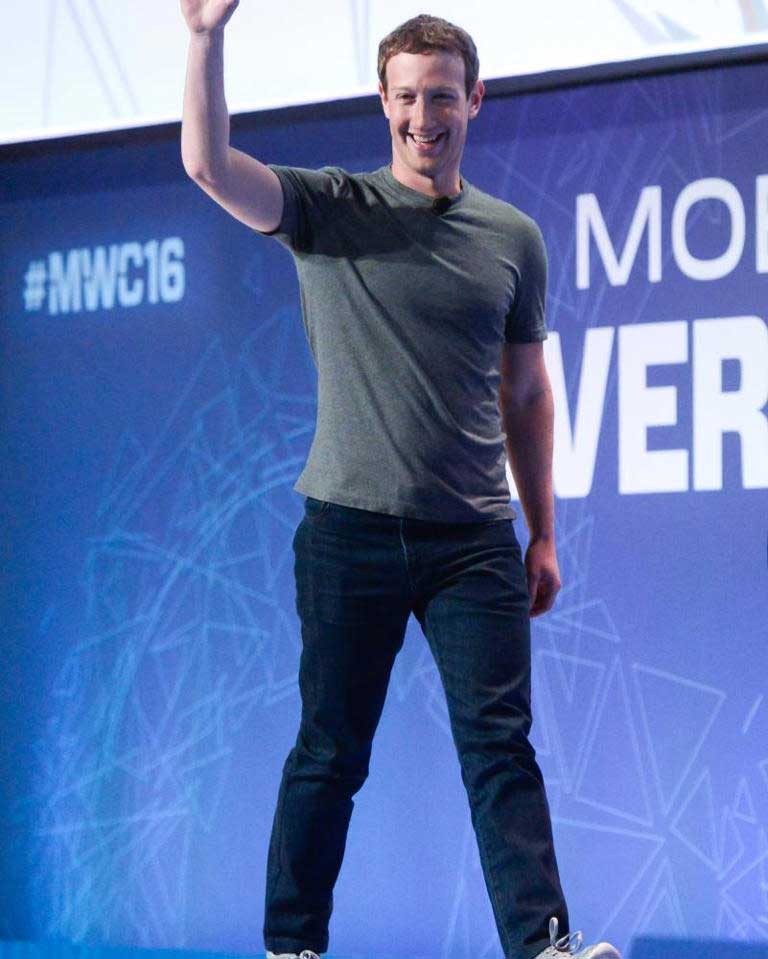The Guardian
Mark Zuckerberg’s metaverse vision is over. Can Apple save it?
Story by Alex Hern • 22-5-2023
Such an expansive definition – simply setting up a Memoji on your iPhone or logging into Fortnite could count as “using the metaverse” – helps Meta dodge criticism that the dream the company promised looks no closer to fruition now than it did 18 months ago.
It also helps to make the prospect of actually building the damn thing look more appealing.
In a piece of research commissioned by Meta this month, the Deloitte consultancy said that the metaverse could contribute “between £40bn and £75bn in additional GDP [gross domestic product]” to the UK alone by 2035.
The 25-page report – one of nine commissioned for every large market Meta operates in, from “the metaverse and its potential for the United States” to “Enabling the metaverse in sub-Saharan Africa” – argues optimistically that “there is a large opportunity for the UK as a metaverse leader” and concludes that the benefits could reach as high as 2.4% of GDP. To reach those figures, Deloitte applied much the same vague definition as Clegg, but stretched the net even further, pulling in the entirety of the cryptocurrency space as a side benefit.
“The metaverse will also likely necessitate the use of new verification technologies based on ledgers of permanent entries – blockchains, broadly referred to as ‘Web3’ – to support its decentralised nature,” the report argued. Some challengers for Meta’s claim to the metaverse are more like blockchains with rudimentary 3D engines attached: virtual worlds such as Decentraland and the Sandbox trade “land” and “objects” for real-world money but attract few active users otherwise.
“Economic value will be created by new markets, business models, skills development and better ways of working in the UK,” said Deloitte. What new markets? Well, Liverpool football club launched an NFT (non-fungible token) collection in March 2022 “and generated revenue of £1.13m, even though 95% of the digital collection did not sell”. A few months later, Liverpool spent £85m on Benfica striker Darwin Núñez, so it is fair to guess that the NFT collection did not have a huge impact on the club’s bottom line for the year.
“You see a lot of poorly reported or badly written articles referring to the metaverse as ‘3D worlds such as the Sandbox, Decentraland and Roblox’. The frustrating thing is, two of those are terrible website experiences that serve hundreds of people and one of them is a video game platform that serves 66 million active users per day,” said James Whatley, the chief strategy officer at creative agency Diva.
He added: “Beware of the consultant that promises you metaverse numbers but then delivers a Web3 website experience. If you’re a serious player in this space, you want to speak to hundreds of millions of people – and those people play video games. Not crap 3D websites.”
Education could also be booted, Deloitte insisted. “The metaverse could help transform classroom settings while allowing students to avoid the costs of moving to and living in the UK. This could be a boon for the approximately 600,000 international students currently attending UK universities.” So could healthcare, industry, live entertainment – and even just plain old office jobs.
Meta’s chief executive, Mark Zuckerberg, denied that his company had shifted its focus away from the metaverse towards AI. Photograph: David Ramos/Getty Images
© Provide
Mark Zuckerberg’s metaverse vision is over. Can Apple save it?
Story by Alex Hern • 22-5-2023
Such an expansive definition – simply setting up a Memoji on your iPhone or logging into Fortnite could count as “using the metaverse” – helps Meta dodge criticism that the dream the company promised looks no closer to fruition now than it did 18 months ago.
It also helps to make the prospect of actually building the damn thing look more appealing.
In a piece of research commissioned by Meta this month, the Deloitte consultancy said that the metaverse could contribute “between £40bn and £75bn in additional GDP [gross domestic product]” to the UK alone by 2035.
The 25-page report – one of nine commissioned for every large market Meta operates in, from “the metaverse and its potential for the United States” to “Enabling the metaverse in sub-Saharan Africa” – argues optimistically that “there is a large opportunity for the UK as a metaverse leader” and concludes that the benefits could reach as high as 2.4% of GDP. To reach those figures, Deloitte applied much the same vague definition as Clegg, but stretched the net even further, pulling in the entirety of the cryptocurrency space as a side benefit.
“The metaverse will also likely necessitate the use of new verification technologies based on ledgers of permanent entries – blockchains, broadly referred to as ‘Web3’ – to support its decentralised nature,” the report argued. Some challengers for Meta’s claim to the metaverse are more like blockchains with rudimentary 3D engines attached: virtual worlds such as Decentraland and the Sandbox trade “land” and “objects” for real-world money but attract few active users otherwise.
“Economic value will be created by new markets, business models, skills development and better ways of working in the UK,” said Deloitte. What new markets? Well, Liverpool football club launched an NFT (non-fungible token) collection in March 2022 “and generated revenue of £1.13m, even though 95% of the digital collection did not sell”. A few months later, Liverpool spent £85m on Benfica striker Darwin Núñez, so it is fair to guess that the NFT collection did not have a huge impact on the club’s bottom line for the year.
“You see a lot of poorly reported or badly written articles referring to the metaverse as ‘3D worlds such as the Sandbox, Decentraland and Roblox’. The frustrating thing is, two of those are terrible website experiences that serve hundreds of people and one of them is a video game platform that serves 66 million active users per day,” said James Whatley, the chief strategy officer at creative agency Diva.
He added: “Beware of the consultant that promises you metaverse numbers but then delivers a Web3 website experience. If you’re a serious player in this space, you want to speak to hundreds of millions of people – and those people play video games. Not crap 3D websites.”
Education could also be booted, Deloitte insisted. “The metaverse could help transform classroom settings while allowing students to avoid the costs of moving to and living in the UK. This could be a boon for the approximately 600,000 international students currently attending UK universities.” So could healthcare, industry, live entertainment – and even just plain old office jobs.
Meta’s chief executive, Mark Zuckerberg, denied that his company had shifted its focus away from the metaverse towards AI. Photograph: David Ramos/Getty Images
© Provide
12 months ago


